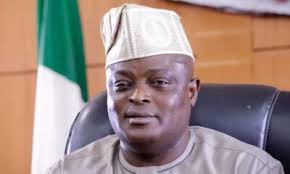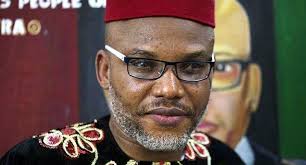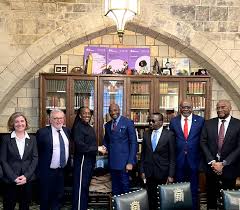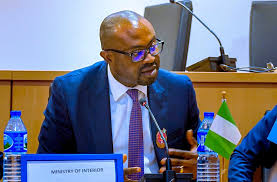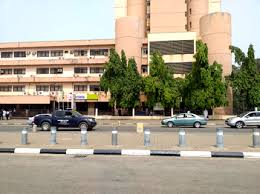Minister of Power, Mr. Adebayo Adelabu, has said that N8 billion in the 2025 budget of the ministry is for advocacy against vandalism and challenges in the Nigeria Electricity Supply Industry, NESI.
Read Also: Power Ministry’s N8bn budget for electricity bill sensitisation is wastefulness, corruption — NLC
The minister made the clarification in a statement, Thursday, by Mr Bolaji Tunji, his Special Adviser on Strategic Communications and Media Relations, in Abuja.
Tunji quoted Adelabu as saying that the N8 billion in the 2025 budget appropriation of the ministry was specifically meant for advocacy, education, enlightenment and provision of technology to protect power infrastructure.
Recall that mixed reactions followed claims that the ministry was spending N8 billion on electricity bill payment awareness.
Reacting in the statement, the minister said that the ministry had no such need to preach to Nigerians about the need to pay for electricity consumed.
According to him, the budgetary amount is meant to sensitise Nigerians on the need to show patriotism in their attitudes and conducts towards national assets, especially power infrastructure.
”It is also to enlighten Nigerians on the need to protect and take ownership of the power infrastructure and other national assets.
”This is contrary to claims in some quarters that the money is meant for sensitisation on payment of electricity bills,” he explained.
The minister added that the various Distribution Companies (DisCos) were capable of recovering debts owed them by those who enjoy their services.
He added that far from what was being canvassed, the Federal Government was deeply worried about acts of sabotage that have continued to erode the gains made in the last one and half year in electricity supply to Nigerians
”It is important to correct the impression that N8 billion is being proposed for sensitisation on electricity payment.
”We are all aware that in the last few months, acts of vandalism have continued to throw different parts of the country into darkness with vandals planting bombs under power towers, carting away power lines and cables.
”The recent one is the vandalism of underground cables that has thrown many parts of Abuja into darkness. It is therefore important to protect power infrastructure, ” he said.
Adelabu further clarified that the ministry’s advocacy programme would entail sensitisation across the 774 Local Government Areas (LGAs), the 36 states and the FCT.
He said the programme would also entail the use of electronic platforms such as radio and television; the social media, newspapers, billboards to re-orientate Nigerians on the implications of vandalising power infrastructure.
”It will also require the engagement of the different community stakeholders across the geo-political zones in town hall meetings; engaging local security men to protect such assets.
”This will also involve the deployment of technology to safeguard these assets.
‘The ministry will alos embark on some Corporate Social Responsibility (CSR) projects across many of the host communities to our power installations to motivate and encourage them on the protection of power infrastructure by local hunters and security personnel.
”All these will cost so much. More specifically, the advocacy will take us to all the nooks and crannies of the country. We will hold meetings with the leaders, stakeholders and youths,” he said.
‘Vandals use dynamites’
The minister said that those concerned would be reached in their local languages and dialect, adding that this would help address the issue of vandalism.
According to him, this is essentially what this budgetary allocation is meant for.
”It cost the Transmission Company of Nigeria (TCN) more than N9 billion, to bring back the transmission towers and lines destroyed by the terrorists on the Shiroro-Mando-Kaduna line, which threw parts of northern Nigeria into darkness in 2025.
He disclosed that dynamites were used to bring down the towers and the lines, adding that this was just one of many of such attacks across the nation.
Adelabu said that till date, the job of bringing back the transmission towers and lines destroyed, had not been completed due to activities of bandits who have continued to stagnate efforts to repair some of the lines.
”It is our belief that the advocacy we are proposing will be able to redirect the minds of those who are bent on taking us backward in our effort to provide efficient, effective, and uninterrupted electricity to Nigerians.
”Only last weekend, almost half of Abuja was thrown into darkness as a result of the activities of vandals. The history of vandalism of the nation’s power infrastructure is legendary.
”However, in the recent years, it has escalated and in the over one year, it has continued to increase at an alarming rate. We have suffered sustained and more violent attacks on our infrastructure.
Adelabu however said that the power industry, had received support from the nation’s security agencies to address attacks on power infrastructure, adding that it still had not abated.
According to him, the power ministry does not have a police or army of its own to secure these infrastructures and this informed our decision to seek the National Assembly approval to embark on this advocacy to community leaders.
”As well as stakeholders, youths, and all Nigerians on the need to take ownership of the power infrastructure located in their areas and communities.”
Grid collapse
The minister further said that efforts were continuing to tackle the problem of incessant grid collapse, as it was a known fact that over the years, the infrastructure had been neglected and allowed to decay to a state of dilapidation.
He said that the Siemens project was one of the ways of tackling the incessant grid collapse.
He disclosed that the pilot stage of the Siemens project was to ensure the installation of 10 power transformers and the mobile substations across the country, adding that it was about 95 per cent completion.
”So far, we have installed eight power transformers and five mobile substations in Okene, Kogi; Amukpe, Delta; Ihovbor, Edo; Apo, Abuja; Maryland, Lagos; Potiskum, Yobe; Ajah, Lagos; Birnin Kebbi, Kebbi; Jebba, Niger; Kwanar-dangora, Kano; UI, Oyo; Sapele, and Ogun.
”The 2nd phase will see the construction of 14 brown field substations and 20 green field substations. Agreement has been signed for the construction of five substations starting first quarter of 2025.
”This will further strengthen the grid capacity and reduce instances of grid collapse. Not only that, the Supervisory Control and Data Acquisition (SCADA) project is still on-going,” he disclosed.
The minister noted that when the present administration came on stream, the generation stagnated at about 4000 Megawatt (MW), adding that within that period till date, over 1000 megawatts had been added to the grid reaching 5,528 MW.
He said that the increase in MW was in line with the campaign promise of President Bola Tinubu that electricity remains a fundamental right of Nigerians, and the power ministry would work to achieve that.
